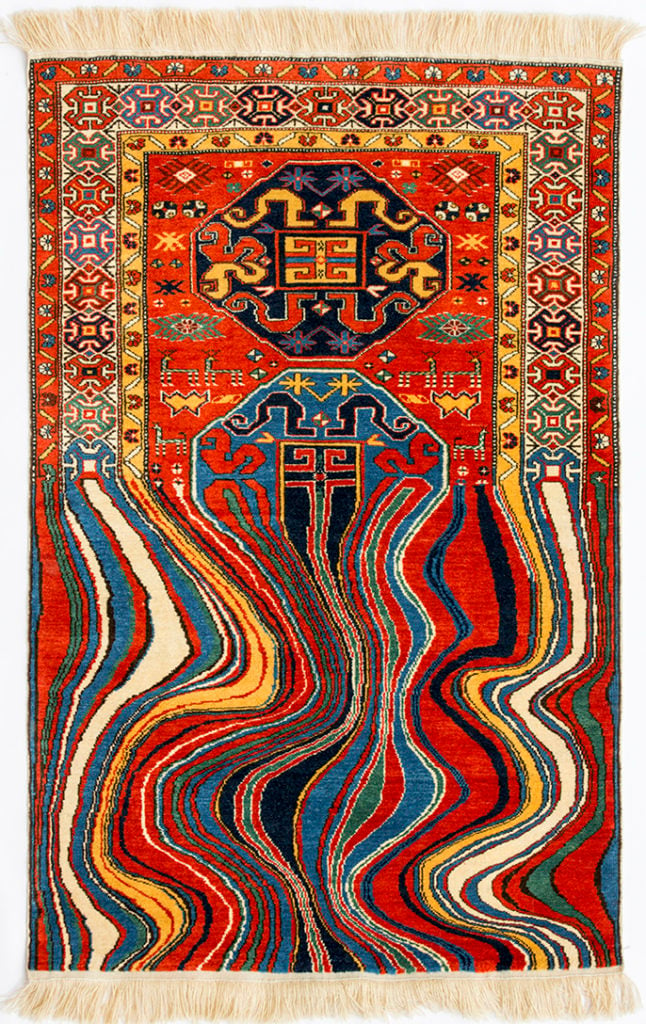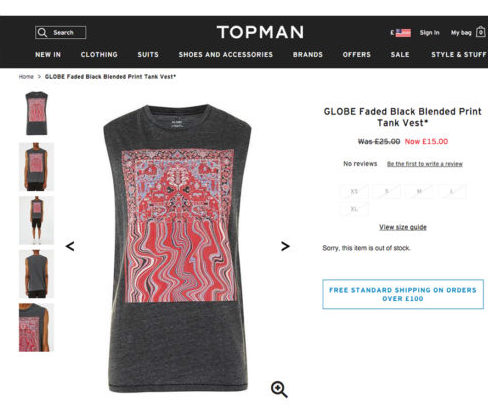Law & Politics
Artist Accuses Global Fashion Brand Topman of Plagiarism Over T-Shirt Design
The item has sold out already.

The item has sold out already.

Amah-Rose Abrams

Artist Faig Ahmed is claiming that British fast-fashion brand Topman has ripped off one of his sculptures for a t-shirt design.
Ahmed’s Oiling (2012) bears a very strong resemblance to the “Globe Faded Black Blended Tank Vest,” which has now been removed from the international Topman website. Both the woven carpet sculpture by Ahmed and the t-shirt show a Middle-Eastern tapestry that appears to be melting.
“I have received various invitations to collaborate with designers and large companies, but I always refuse direct involvement in the production of mass products since this contradicts the very principle of art,” Ahmed told Hyperallergic.
Ahmed, who represented Azerbaijan at the 2007 Venice Biennale, uses altered traditional carpets to create some of his sculptures.

The t-shirt in question. Photo screen-grab from www.topman.com
“I’m not surprised [about the shirt], as plagiarism is a very common practice among such big companies,” Ahmed said. “But unfortunately, the international judicial settlement costs a lot of money, and not every artist for this reason can defend their rights. One of the main points in my art is that I’m not doing it for the commercial purposes.”
Ahmed, based in Baku, is not only upset by the fact that the designs have been plagiarized in the first place but also that the designs were copied in a sloppy way.
“The copy was made in a very unprofessional manner,” Ahmed told Hyperallergic. “If you will look at their design closely, you can immediately see a huge number of defects and inaccuracies.”
Earlier this month many artists spoke out against Spanish high-street fashion retailer Zara who have been accused of ripping off over 40 works.
Given the nature of these global fast-fashion brands, once a design has been used in this way, most people will see the t-shirt not ever knowing the artwork it copies—especially in this case, as the item has sold out.
“Of course, this affects the reputation of any artist,” Ahmed said. “This gives a bad example to other large companies; they just can follow the path taken by Topshop … Since these companies have enormous financial opportunities, and recognizing the fact that the world is governed by big money, it seems to me that this was not the last case of unauthorized use.”
Ahmed reached out to both Topshop and the t-shirt’s supplier Globe, but neither gave any explanation or legal point of contact to the artist.